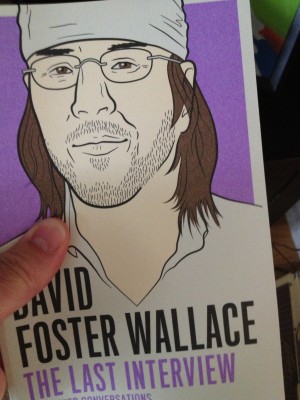I’m happy to report that I have a new essay up at Open Letters Monthly. It’s called “My Disappearance” and it’s about teaching creative writing, David Foster Wallace, the idea of mentors, being turned into a fictional character, and John Barth. And so much more!
Well, not really: that’s actually what it’s about, but you know, spooled out into many more words and riveting anecdotes. Anyway, please go check it out. I can’t think of any pithy, meta angle to take on this piece; it’s already fairly meta as it is.
Okay, I lied: here are two meta-bits. In the essay, there’s some stuff about funhouse mirrors, à la Barth’s Lost in the Funhouse, and this has gotten me thinking about weird mirror effects. I’ve only taken a few selfies thus far in my life, which probably tells you more about my age and disposition than I care to admit, but one of them was in an elevator, alone, just as the doors closed. It was one of those elevators whose door interior was all reflective, and I had two competing reflections of myself sliding toward each other on each half, except that when they met and sealed me in, my head disappeared. The rest of my wide body reflected, but my noggin was erased. And that’s the photo I got. I’m not sure where that photo is at the moment, or I would post it. It’s lost somewhere in the ever-expanding junk drawer of digital documentation. Someone should become the Marie Kondo of data storage.
Second, Graceland. Everyone should visit Graceland, not just because Elvis lived there but because the combination of irony and sentiment and kitsch whirs together into something that ends up feeling like pathos. But one of the many great moments in Graceland, when you take the tour, is when you walk down the stairs into Elvis’s basement. The walls and the ceiling of the stairwell are completely covered in mirrors, and the panoramic reflection of yourself and the rest of the tourists is overwhelming. If there is a heaven, Elvis is there, giggling.
